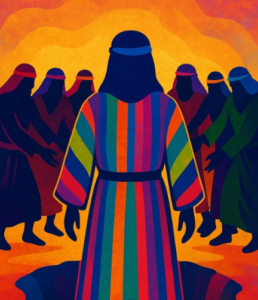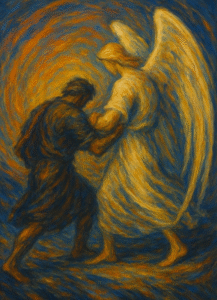Corona and Me
“Why can’t we go outside and play?!” The fresh air, bright sun and spring weather beckon to our kids. They wonder why they can’t run around freely but instead have to be cooped up for what feels like an eternity. Likewise, us big kids (or adults) want to get back to “regular life.” We have done teshuvah, prayed earnestly for the sick and for better times, and listened to countless inspirational Torah lectures. Isn’t it time for the good life already? Why must we wait so long?
We’re not the first ones to feel this way. This week’s parashah discusses the metzora—a person who has spoken evil of his fellow man and is now stricken with a plague of the skin. Once confirmed by the Kohen, the metzora is put in quarantine until he is healed. He is later reexamined by the Kohen and, when deemed fully healed, a bird-blood and water mixture is sprinkled on him seven times. He must then wash his clothes, shave all his hair, bathe, and remain in quarantine for an additional seven days. Finally, on the seventh day, he once again washes his clothes, shaves his hair, and immerses in a mikvah. One would imagine that after all that he can finally be pronounced pure in order to return to society—but the Torah makes him wait until the eighth day when his sacrifice is brought: only then is he finally, fully pure. Why must the Torah subject him to such a long waiting time? Why couldn’t he immediately cleanse himself and atone?
In a similar vein, a Kohen who is exposed to impurity cannot partake of terumah until he has immersed in the mikvah, and only “after the sun sets, he will be ritually pure, and afterwards he can eat from the holy offerings, for it is his food” (Leviticus 22:7). This verse implies that though the Kohen has done an act of purification like going to the mikvah, time—represented by the setting of the sun and the beginning of a new day—is the final catalyst for change.
Inasmuch as we don’t understand why God has infected the world with coronavirus, for the first time in history the entire world is united in a common mission of social distancing. We have all been given a metzora-like opportunity to achieve everlasting change.
Spiritually, we cannot heal without time. Although we envision and desire a spiritual goal, the human experience does not allow us to immediately jump to this place. The longer we feel the restraints of time, the greater our capacity to develop the desire and ultimate will power to truly grow and become Godlike.
Each day (no matter how similar they may now seem) is an entirely new creation. We may feel like life is frozen and stale right now, but this couldn’t be further from the truth. Our every experience is tailor-made, and God constantly manipulates our every interaction so that we live in a constructive state of spiritual flux. If we put our trust in His process, each day provides a new opportunity to envision our goals and increase our longing and desire for them, so that we can become worthy receptacles of God’s blessing.
The seven weeks of counting the Omer are compared to the niddah, the woman who counts seven days until she becomes pure (Zohar, Emor 97b). Why can’t she immediately go to the mikvah, and why must we count seven weeks until we are worthy enough to receive the Torah? The answer is that for us to cleanse and become different, we must harness our will power and desire. Only then will God find us capable enough to reach and remain at our new state.
Instead of merely sitting in our homes and waiting impatiently, let us begin to count and recognize that each day is special and unique. This will increase our capacity to change, so that we can receive not only the Torah but also the ultimate salvation, the arrival of Mashiach shortly and in our time. Amen!
Based on Likutey Halakhot, Birkhot HaShachar 5
- 0 comment






















